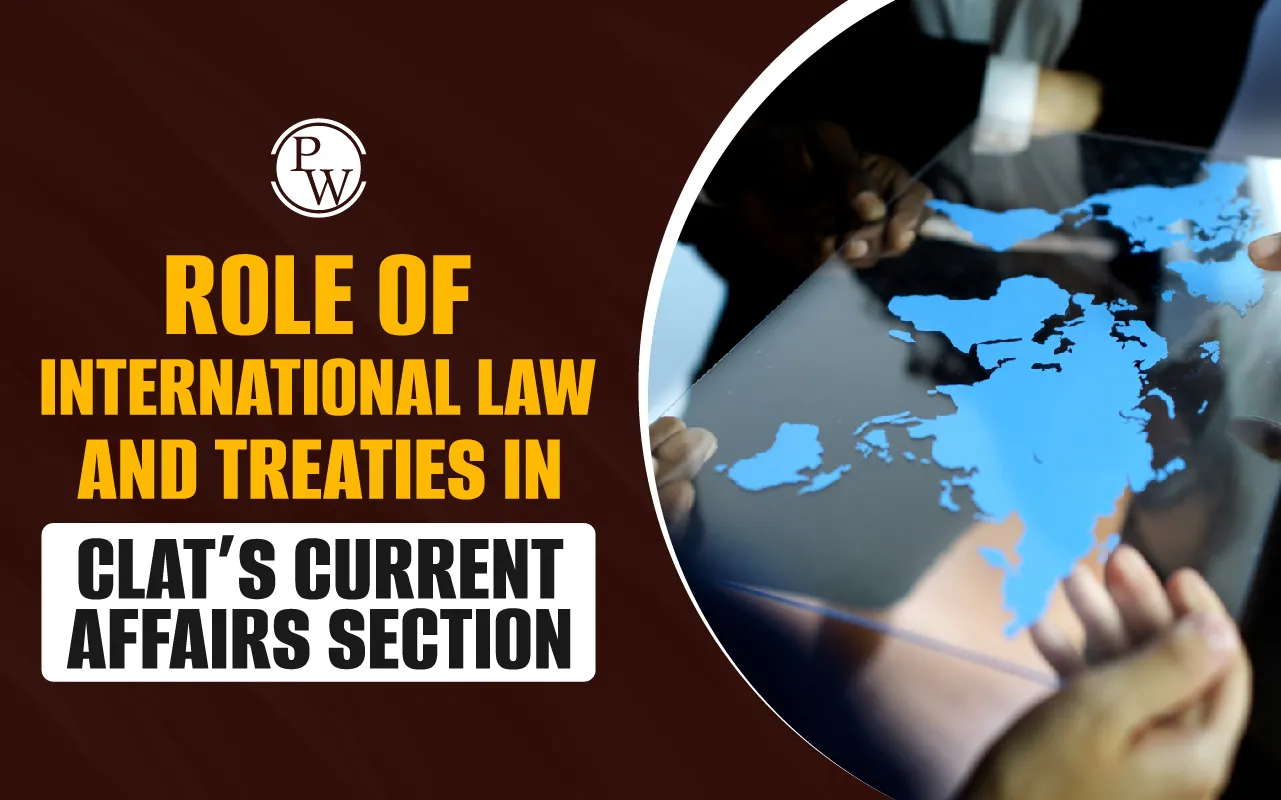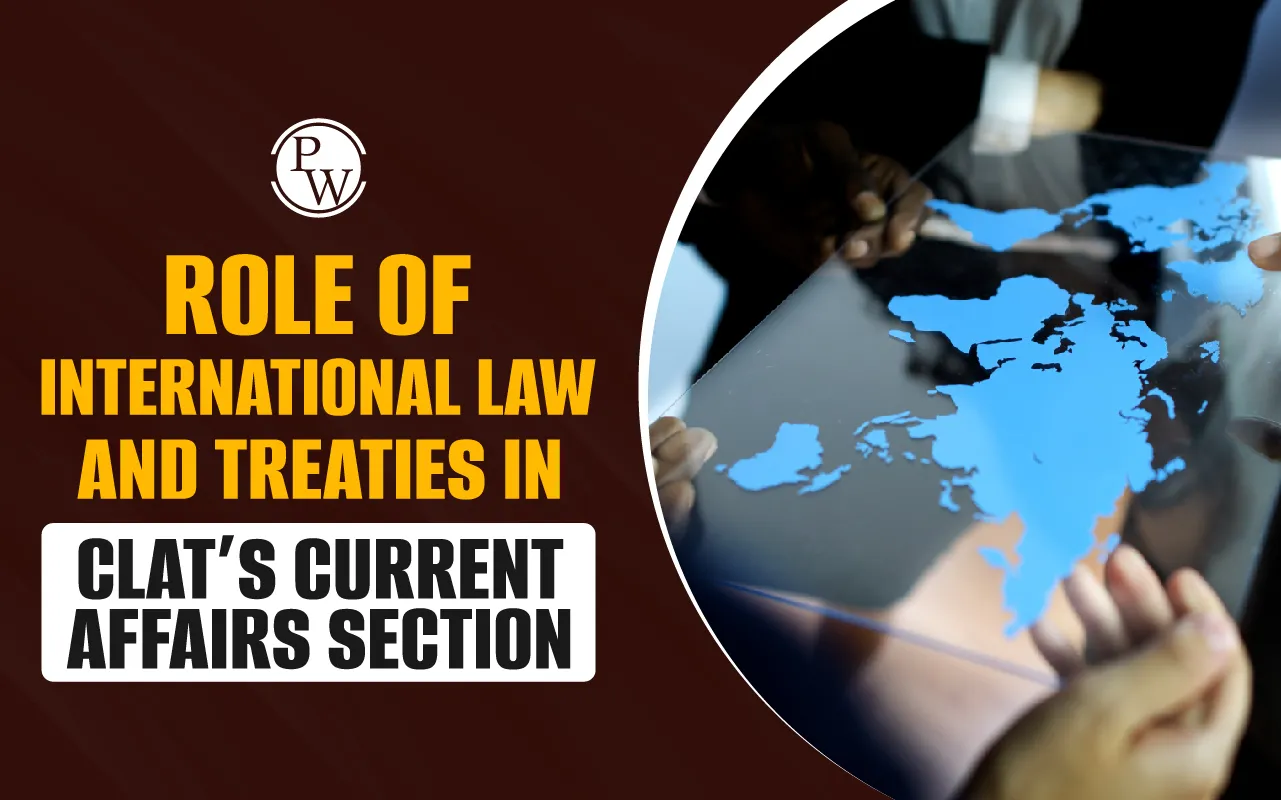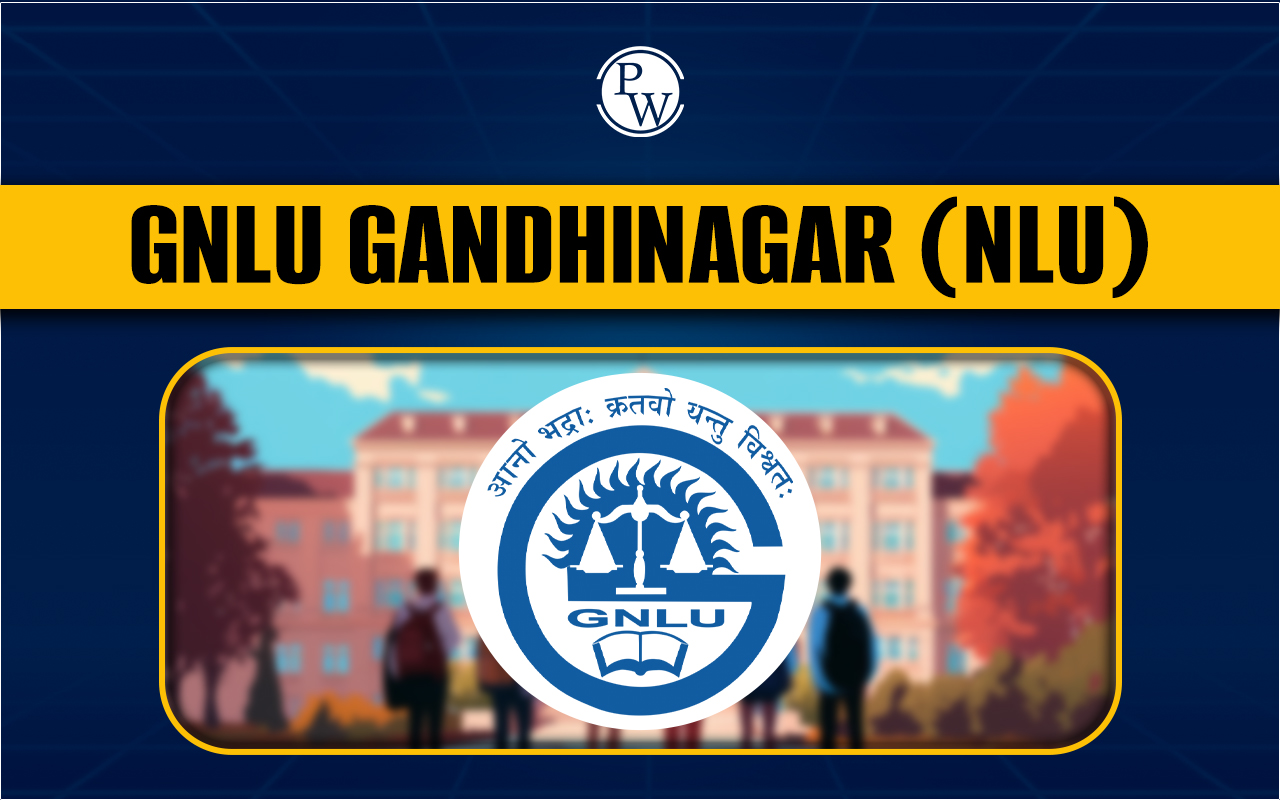

Role of International Law and Treaties in CLAT’s Current Affairs Section: The Common Law Admission Test (CLAT) is a national-level entrance exam in India, conducted for admission to undergraduate (LLB) and postgraduate (LLM) law programs at prestigious National Law Universities (NLUs) and other participating institutions. The exam assesses candidates on subjects like English, General Knowledge, Legal Aptitude, and Logical Reasoning.
Among these subjects, CLAT’s Current Affairs Section holds major significance as it evaluates candidates’ awareness related to national and international affairs. In this section, international law and treaties play a vital role. Questions are framed on recent global agreements, summits, and their impact on international relations and legal frameworks. Understanding these treaties not only tests candidates’ awareness of significant world events but also their grasp of how international legal norms influence national laws and contemporary issues.
Importance of International Law and Treaties in CLAT’s Current Affairs Section
International law and treaties hold a crucial place in the Current Affairs section of the CLAT exam, as they test a candidate’s awareness of global diplomatic events, agreements, and their impact on international law and relations. The role of International Law and Treaties in CLAT’s Current Affairs Section is significant due to the following reasons.
- CLAT’s current affairs section includes questions that focus on landmark treaties such as the Paris Agreement, Geneva Conventions, the UN Charter, and the Treaty on the Non-Proliferation of Nuclear Weapons. These are important since they influence global governance, security, and environmental policy.
- A good understanding of international law helps candidates connect current events with legal principles. It enhances their performance not only in current affairs but also in legal reasoning sections.
- Candidates preparing for CLAT 2026 must have a good overview of the international treaties and summits, as these topics are frequently asked in the exam. Knowing the facts can help you tackle questions within no time, thereby improving your CLAT performance.
- For candidates who are aspiring to become lawyers, knowledge of international law prepares them for global legal practice.
Important International Summits for CLAT 2026
Here are some key international summits for CLAT 2026 aspirants to focus on. These events are highly relevant for the Current Affairs section.
- World Economic Forum: Focuses on emerging technologies, an inclusive global economy, and sustainable development.
- G7 Summit: Prioritizes inclusive economies, climate change, regulation of emerging technologies, and global security, with special attention to migration and support for Ukraine.
- NATO Summit: Discusses defense spending, transatlantic relations, and ongoing conflict in Ukraine.
- Opening of the UN General Assembly: Major discussions on sustainable development goals (SDGs), peace, security, and global cooperation.
- COP30: The UN climate conference focusing on emissions reduction and climate finance, especially for developing nations.
- G20 Summit: Emphasizes solidarity, equality, sustainability, disaster resilience, debt relief, and inclusive economic growth.
- UN World Space Forum: Addresses international cooperation for sustainable and equitable use of space resources.
- ASEAN and East Asia Summit: Focuses on sustainable development, climate change, digitalization, and regional economic agreements.
Important Treaties for CLAT 2026
For CLAT 2026, knowledge of important international treaties is essential, as questions often test awareness of global agreements shaping international law and current affairs. Treaties related to climate change, nuclear non-proliferation, human rights, and intellectual property are especially relevant. Given below are some key treaties that candidates can review for CLAT 2026.
-
Paris Agreement: A landmark treaty under the UNFCCC focused on combating climate change and limiting global warming.
-
Geneva Conventions: Core international treaties establishing standards for humanitarian treatment during war.
-
Treaty on the Non-Proliferation of Nuclear Weapons (NPT): Aims to prevent the spread of nuclear weapons and promote peaceful uses of nuclear energy.
-
Rome Statute of the International Criminal Court: Establishes the ICC to prosecute individuals for genocide, crimes against humanity, and war crimes (India has not signed this treaty).
-
WIPO Treaties (e.g., WIPO Convention, Paris Convention, Berne Convention): Protect intellectual property rights globally and support innovation and creativity.
-
High Seas Treaty: Focuses on the protection and sustainable use of marine biodiversity in areas beyond national jurisdiction, with recent progress towards entry into force in 2025.
How to Prepare for CLAT 2026 Current Affairs Section?
The Current Affairs section of CLAT 2026 is a crucial component that evaluates candidates on their awareness of significant national and international events, as well as their ability to interpret and analyze contemporary issues. This section is not just about memorizing facts; it requires understanding the relevance and impact of current events, especially those related to law, governance, and global affairs. Here are some preparation tips to effectively cover CLAT’s current affairs section.
-
Read newspapers daily, focusing on editorials, national, international, and legal news to build comprehension and stay updated on key events.
-
Use monthly current affairs magazines to revise and cover important developments, treaties, and legal milestones.
-
Make concise notes and use flashcards to organize information by categories (politics, law, environment) for quick and effective revision.
-
While studying the current affairs section, try linking the current events to legal principles and implications. Analyze not just the facts but also their significance for law and governance.
-
Try to dedicate 30-40 minutes daily to current affairs. Revise weekly and monthly to consolidate your knowledge and ensure retention.
Role of International Law and Treaties in CLATs Current Affairs Section FAQs
Why is international law important for CLAT Current Affairs section?
What types of questions on treaties are asked in the CLAT Current Affairs section?
How do international treaties relate to legal reasoning in CLAT?
Which international treaties are most relevant for CLAT?
Are questions on international organizations also included?












